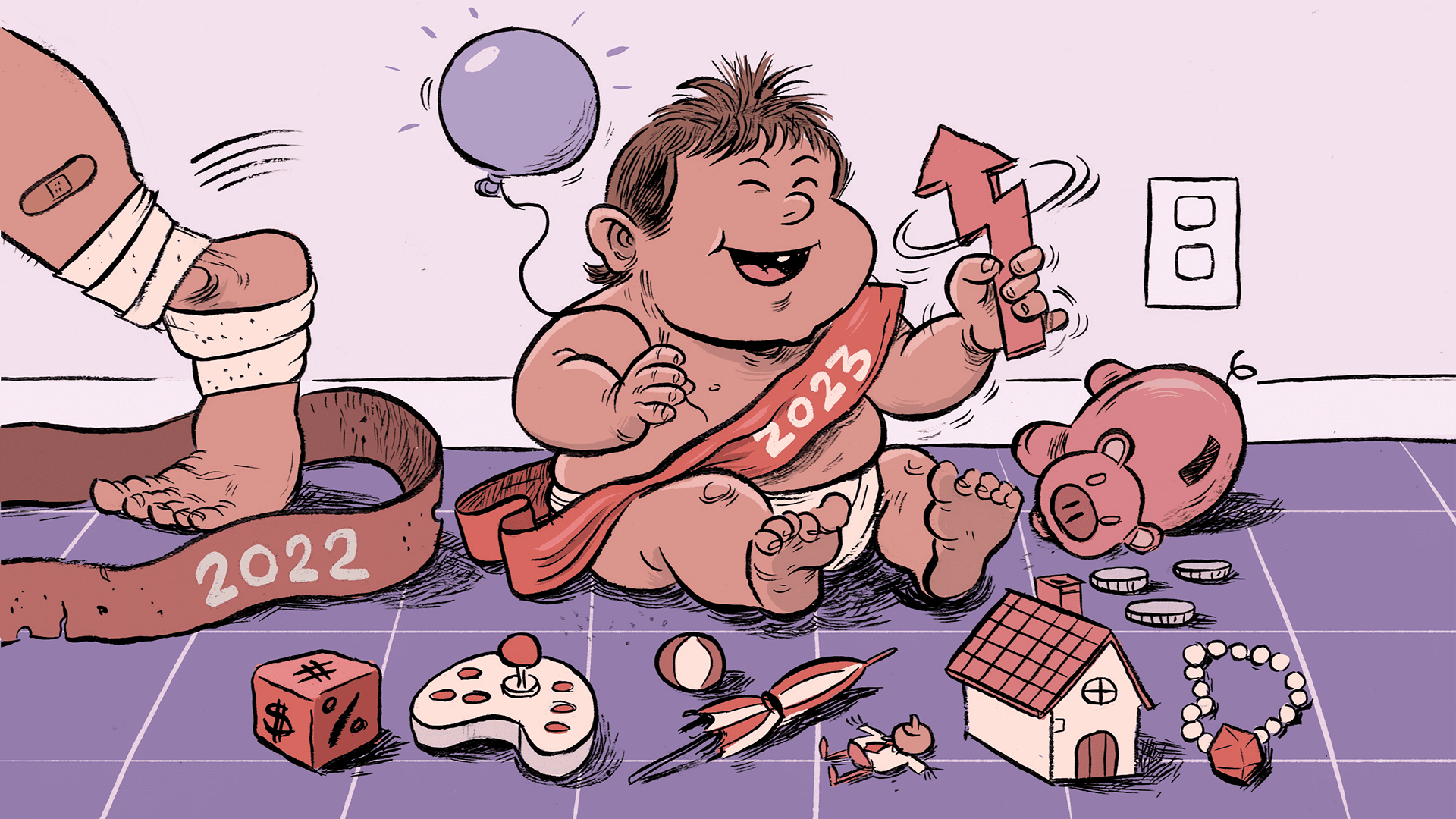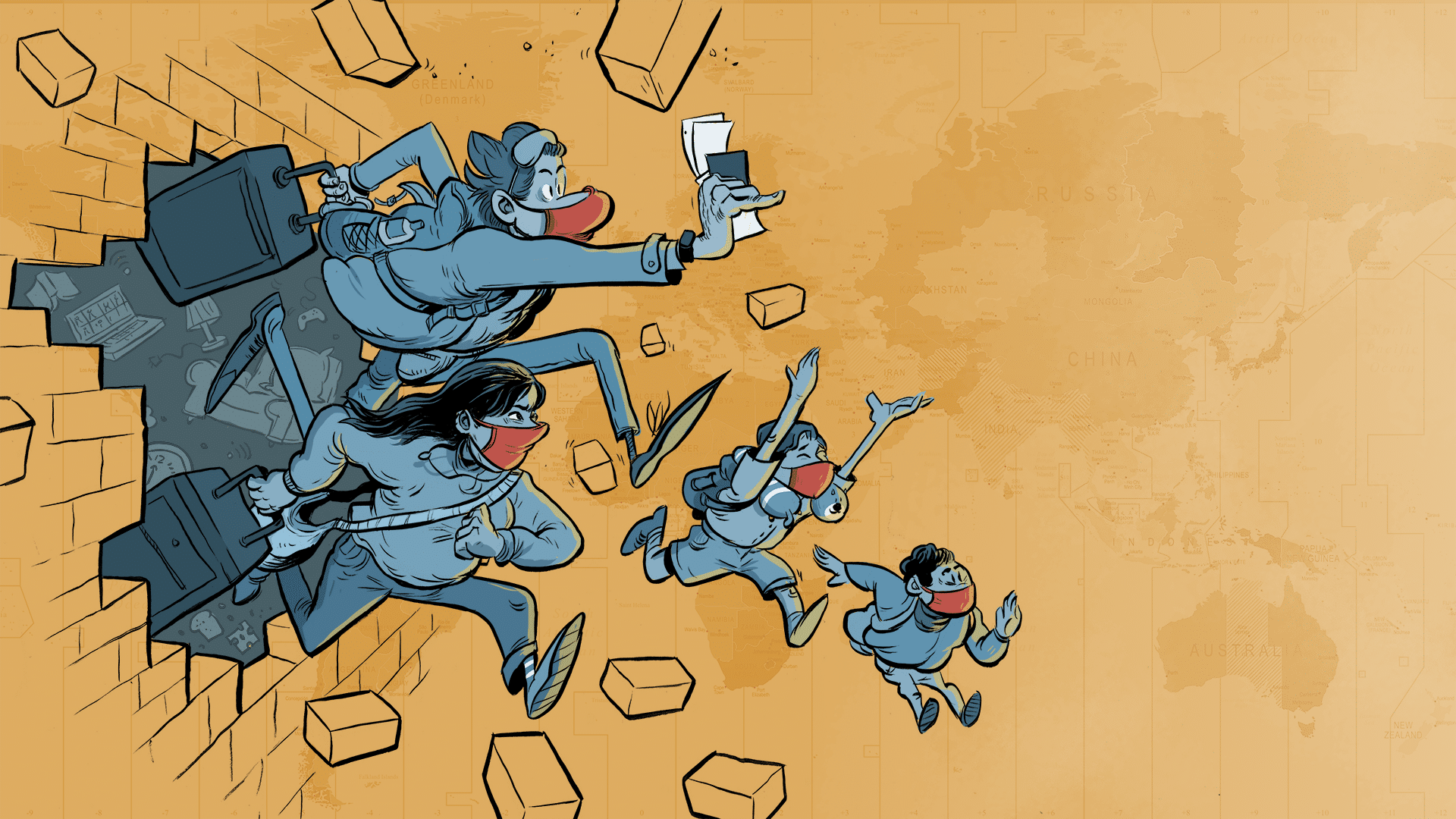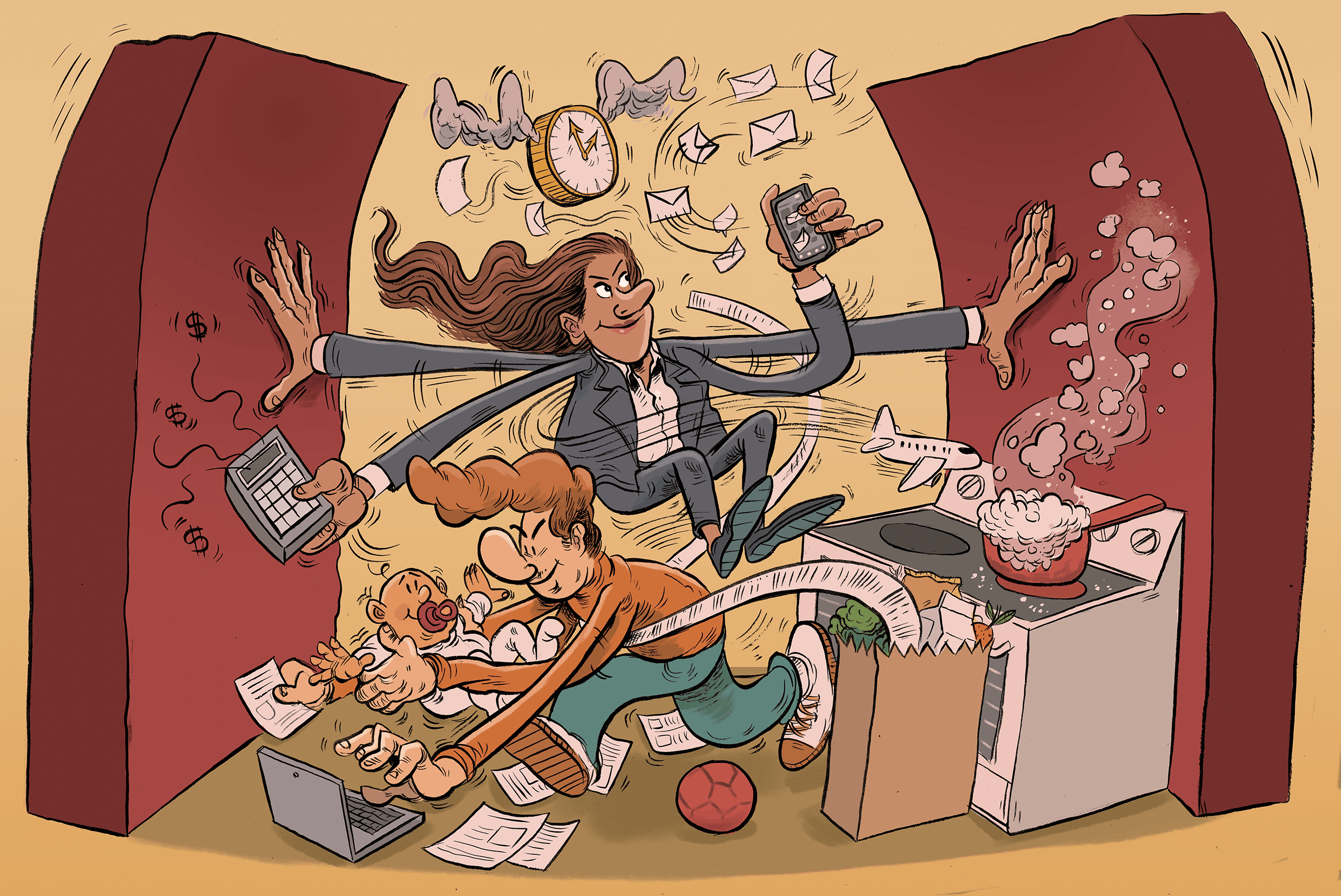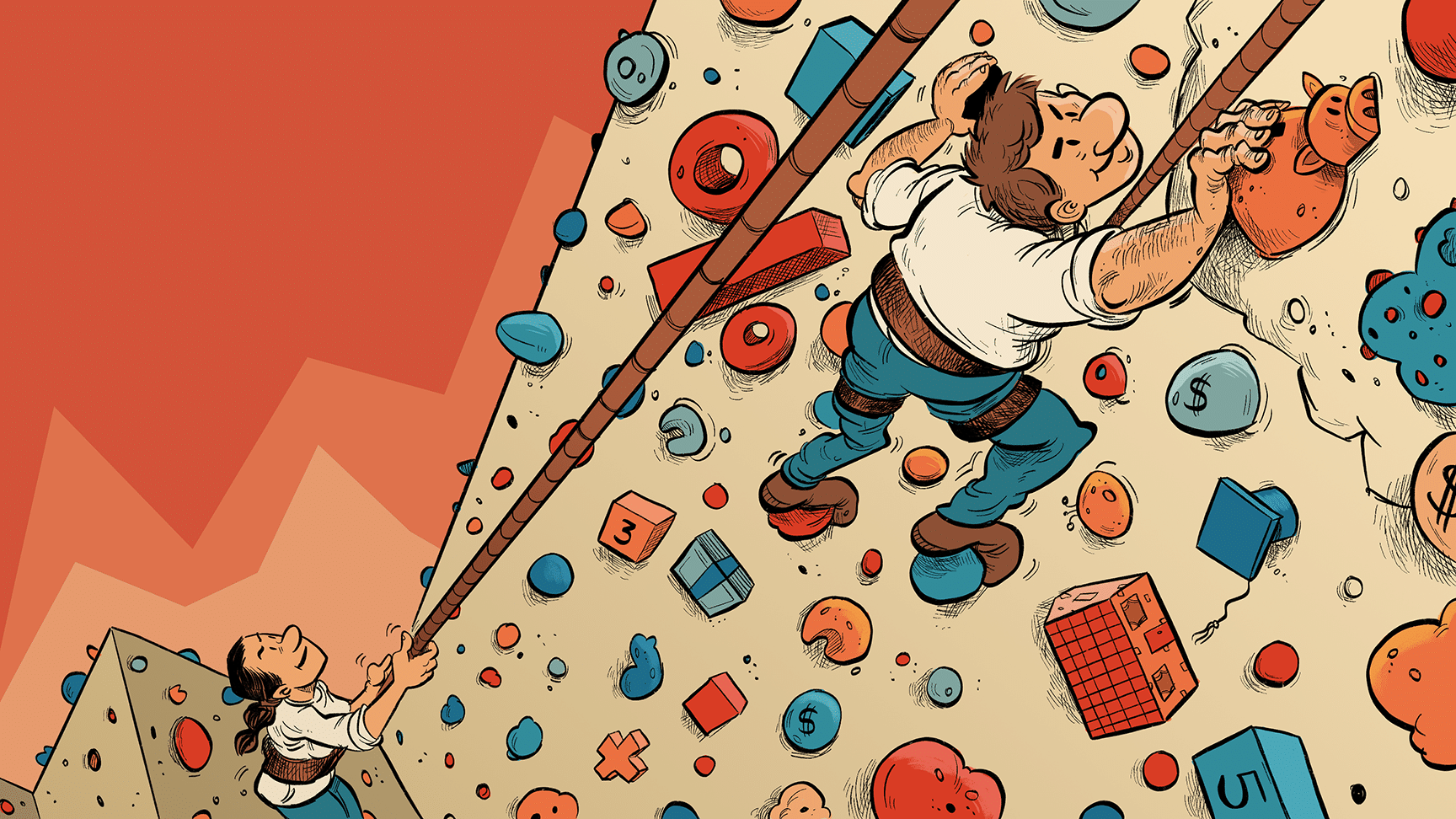
Recession ready at any age
When you hear people talking about a recession, you may wonder what might a severe economic downturn mean for you. No matter how old you are or where you are in life, there are steps you can take to prepare. (Spoiler: You might be better prepared than you think)
You may have noticed the word “recession” has been popping up lately. It can be found in headlines, on television, even among friends in casual conversation. But what is a recession and what does it mean for your finances?
A recession occurs when the gross domestic product (GDP) of a country contracts for two consecutive quarters. More broadly, economists look at a variety of indicators including asset prices, consumer spending and unemployment before declaring a recession. While recessions may be unpleasant, they’re also temporary, typically lasting between six and 12 months, and widely considered to be part of an ordinary economic cycle. Canada has experienced numerous recessions over the years, the most recent of which was in 2008. It’s important to remember that an economic recession is not the same thing as an economic “depression” like that of the 1930s.
“People often fail to realize that recessions are very normal,” says Varun Bhagwat, a Senior Financial Planner with TD Wealth, Financial Planning. “While it may be too early to say whether we’re headed into a recession, it won’t be the first we’ve experienced, and it won’t be the last.”
Given all the chatter, it’s understandable if you’re feeling a little apprehensive about the future of the economy right now. But it may not be as bad as you think. No matter where you are in life, Bhagwat says there are steps you can take to help ready your finances for a potential recession. He also suggests that many of us might be better off viewing our circumstances more positively. After all, he says, long-term investors have in the past benefited from strong growth on the recovery side.
While we wait to see what happens, here are a few steps you can take to prepare at any life stage.
When you’re getting started (Ages 18 – 34)
If you’re getting started, this may be the first recession you’ve experienced as a working adult. Many people at the top of this age group would have just graduated from high school when the last recession began in 2008. Although facing a recession in the earlier part of your career can feel unsettling, Bhagwat says this group may have the easiest path forward. After all, you still have decades to go before retirement and plenty of time to recoup any losses.
To brace for potential bumps in the road, Bhagwat suggests young Canadians focus on building a contingency plan for emergency expenses — perhaps even tapping into the bank of mom and dad — as well as paying down any high interest debt. Although you may not yet have a mortgage, credit card debt often comes with a much higher interest rate and can add up quickly — particularly if your employment becomes unstable.
Bhagwat also notes that younger Canadians are more likely to have additional income or “side hustles” that they can use to bulk up their savings or emergency fund in lieu of relying on their parents. Even if your parents are financially supportive, it doesn’t hurt to have a few months’ worth of savings in case the water gets a little choppy.
Ultimately, Bhagwat says a recession can actually provide a unique opportunity for younger Canadians with extra income. “These are the folks who have a long-time horizon for their savings and investments,” he says. If you have extra funds, you may want to max out your Registered Retirement Savings Plan (RRSP) or Tax-Free Savings Account (TFSA) contribution limits for the year or expand your investment portfolio. Even quality companies may trade at bargain prices during a recession when markets often take a pounding. “While you should of course take a balanced approach, how often do you have the chance to buy stocks from great companies at a discount?” says Bhagwat.
Things to consider when you’re just starting out:
- Build a contingency plan. Speak to your family about a recession and what that might mean for you if you lose your job.
- Pay down any high-interest debt. Credit card debt and other high-interest expenses could weigh you down.
- Speak with an advisor about investing. If you have extra cash, now may be an opportunity to start saving for your long-term goals.
When you’re getting crunched (Ages 35 – 54)
Between ages 35 and 54, you may already feel like you’re being pulled in all directions financially. Then people start talking about a recession and it can feel like it’s the last straw. So, what should you do? The first piece of advice Bhagwat has for those who are still getting crunched is to keep paying your future self no matter what. Even small automatic contributions to your retirement and long-term goals can help keep up your momentum as the economy slows down. This could mean continuing to contribute to your RRSPs, a pension fund, a rainy-day fund or all three.
Bhagwat says that no matter how much you save, a portion should remain liquid in a turbulent economy because you may need to rely on those funds without warning. For example, it may be helpful to keep these funds in short-term Guaranteed Investment Certificates (GICs). While a GIC won’t give you a high rate of return, Bhagwat says “that’s not really the objective of something like a rainy-day fund.” He also notes that with rising interest rates, some high-interest savings accounts are actually paying more than GICs, so it’s important to look at all the options available to you.
For those who aren’t sure how much they should have on-hand, Bhagwat recommends taking a look at your expenses over a three-month period to gain a better understanding of how much you’re spending, and how much you may want to keep putting aside in case things take a turn. “Never underestimate the power of small, regular contributions over time,” says Bhagwat, adding that over time these savings can grow into an emergency fund that may cover six-month’s worth of expenses.
Bhagwat often tells his clients that a recessionary period is also a good time to cut back on discretionary expenses. For example, you may want to wait another year before you build that addition on your home or take that expensive vacation to Europe.
“I generally recommend that my clients spend less than 25% of their pre-tax income on discretionary expenses,” says Bhagwat. If you’re already spending more than that, this may be an opportune time to cut back.
In addition to restricting your spending, you may also want to revisit your debt load. Here again, Bhagwat suggests Canadians look for balance: “If you allocate all your extra cash flow toward paying off your debt, and then you need those funds, you may have to borrow more money at a higher interest rate.” He says that while paying down your debt is undoubtedly a good thing, balancing debt repayment with personal savings may cost you less in the long run.
Finally, Bhagwat says Canadians in this age group should revisit their retirement plans with their advisor. By checking in with your plan, you and your advisor will be able to make any necessary adjustments to help ensure you’re still on track with your long-term goals. Retirement plans should be revisited on an annual basis anyway, but it’s particularly important whenever there is a significant change in either your life or the economy.
“One of the benefits of working with a planner is that we can build events, such as a market crash, into your plan and see how your financial health would be affected. Doing this ahead of time can help you prepare,” says Bhagwat.
Things to consider when you’re getting crunched:
- Don’t stop paying yourself. Small, regular contributions to your RRSPs, pension and/or rainy-day fund add up over time.
- Keep some rainy-day funds liquid. An emergency fund isn’t very useful if the money isn’t easy to access.
- Cut back on discretionary expenses. Aim to spend less than 25% of your pre-tax income on the fun stuff.
- Balance debt repayment with cashflow requirements. It doesn’t have to be all or nothing.
- Revisit your retirement plans. An advisor can help ensure you’re still on track to meet your long-term goals.
When you’re getting serious (Ages 55 and up)
If you’re planning to retire in the next 5 – 10 years, Bhagwat’s advice about checking in on your retirement plan may be particularly important for you. After all, any adjustments you make will have a tighter deadline as retirement gets closer. One option Bhagwat has suggested before is to consider whether it makes sense to take your Canadian Pension Plan (CPP) benefits a little earlier than originally planned. Bhagwat says this could be appropriate if your goal is to increase your cashflow without potentially selling any of your retirement investments now at a loss. However, he also cautions that taking CPP earlier than 65 means accepting a reduction in your overall CPP benefits.
Another option would be to downsize your home. While downsizing can free up significant funds, it carries its own considerations and shouldn’t be pursued lightly. If you’re considering downsizing, it may be helpful to speak to your advisor.
Overall, Canadians who are either approaching retirement or have already retired may be wise to watch out for “lifestyle creep.” As we age, and particularly as grown children leave the nest, our discretionary income often increases. When this happens, it’s easy for expenses we once viewed as splurges to become perceived necessities. (Perhaps you don’t need that three-week holiday to Europe every year.) To counter the creep, particularly when inflation is already so high, it can help to keep a closer eye on spending.
Things to consider when you’re getting serious:
- Check in on your retirement plan. An advisor can help offer adjustments to keep you on track.
- Speak to an advisor about when to take CPP. Would you consider taking it earlier than 65 or downsizing your home if money becomes tight?
- Watch out for lifestyle creep. Avoid spending beyond your means.
No matter what age you are, Bhagwat says his most important piece of advice is to avoid making knee-jerk reactions when it comes to investing. “I often find that clients make irrational emotional decisions when markets go down, inflation is high and interest rates are rising — especially when there is a lot of negative sentiment floating around,” he says. “More often than not, changing your investment strategy during a recession will be detrimental to your long-term life goals, and this goes for people in all stages of life.” While reviewing your asset mix with your advisor may help you understand your risk should a recession occur, making changes on your own in a panic could create bigger problems.
Ultimately, it’s important to stay calm and remind yourself that a recession is just like any other stage of the economic life cycle. If you take the time now to prepare — like any other storm — this too shall pass. If you have any questions about a potential recession and what else you can do to prepare, speak to your advisor.
TAMARA YOUNG
MONEYTALK LIFE
ILLUSTRATION
DANESH MOHIUDDIN














